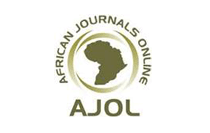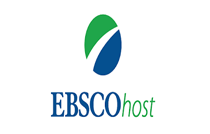Mansoura Veterinary Medical Journal
Document Type
Original Article
Subject Areas
Bacteriology
Keywords
Salmonella Enteritidis, quails, Spirulina platensis, Growth performance, Cytokines
Abstract
Abstract Objective: To investigate the effect of dietary Spirulina platensis supplementation on growth performance, organ colonization, expression of inflammatory-related genes, and antioxidant status in quail challenged with Salmonella enteritidis. Design: Randomized controlled experimental study. Animals: hundred eighty-seven-day-old Japanese quail. Procedures: birds were randomly allocated into 6 equal groups. G1, G2, and G3: non challenged and fed abasal diet supplemented with Spirulina at 0, 1, and 2 g/kg diet, respectively. G4, G5, and G6: challenged and fed a basal diet supplemented with Spirulina at 0, 1, and 2 g/kg diet, respectively. At 21 days of age, all challenged groups were orally inoculated with 1ml of (1.00x107 Salmonella enteritidis/ml). The collected samples were serum for determining biochemical and antioxidant parameters, cecal tissue samples for determination of gene expression of inflammatory-related genes, and tissue samples from liver, heart, spleen, and caecum for bacterial reisolation. Results: The dietary supplementation of Spirulina significantly improved growth performance parameters and reduced organ colonization. The cecal pro-inflammatory gene expressions (IL-6, IL1 ß and TNFα) were significantly downregulated while the anti-inflammatory cytokine (IL-10) was significantly increased. In addition, gene expression of cecal serum amyloid (SAA) was significantly down-regulated. The antioxidant and serum biochemical parameters were improved. Conclusion and clinical relevance: dietary supplementation of Spirulina could be a helpful strategy for mitigating the harmful effects of Salmonella enteritidis in quail.
How to Cite This Article
Abd EL-Dayem, Ghada; Saleh, Gehan; and Abd EL- Elwahab, Reham
(2021)
"Impact of dietary Spirulina (arthrospira) platensis on growth performance, gene expression and antioxidant status of quail challenged with salmonella enteritidis.,"
Mansoura Veterinary Medical Journal: Vol. 22:
Iss.
2, Article 1.
DOI: https://doi.org/10.21608/mvmj.2021.66416.1040
Receive Date
2021-03-06
Accept Date
2021-05-02
Publication Date
6-1-2021






